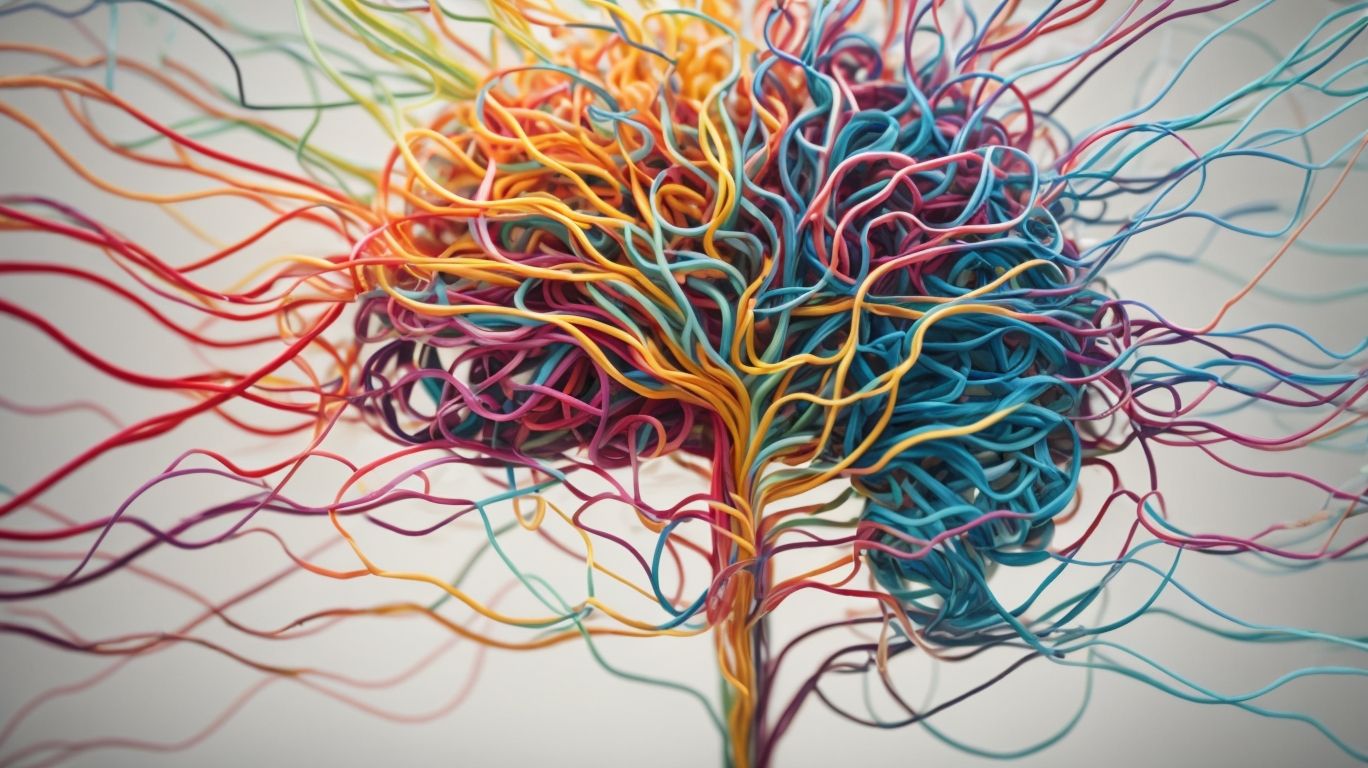Have you ever wondered how psychology plays a role in enhancing relationships? From understanding communication styles to identifying and managing emotions, psychology can have a significant impact on the dynamics of relationships.
In this article, we will explore common psychological issues in relationships such as communication problems, trust issues, and conflict resolution. We will discuss how psychology can help improve relationships through couples therapy, individual therapy, communication skills training, and conflict resolution techniques.
Stay tuned for valuable tips on maintaining a healthy relationship!
Contents
- 1 What Is Psychology?
- 2 How Does Psychology Affect Relationships?
- 3 What Are Some Common Psychological Issues in Relationships?
- 4 How Can Psychology Help Improve Relationships?
- 5 What Are Some Tips for Maintaining a Healthy Relationship?
- 6 Frequently Asked Questions
- 6.1 What is the role of psychology in enhancing relationships?
- 6.2 How can psychology help improve communication in relationships?
- 6.3 What are some psychological techniques for resolving conflicts in relationships?
- 6.4 Can psychology help in rebuilding trust in damaged relationships?
- 6.5 How can understanding personality differences improve relationships?
- 6.6 Is it necessary to seek professional help from a psychologist for relationship issues?
What Is Psychology?
Psychology is the scientific study of the mind and behavior, encompassing a wide range of research methodologies to understand cognitive processes, behaviors, and neurochemical influences.
One of the primary research methods used in psychology is experimentation, where researchers manipulate variables to observe their effects on behaviors and cognitive functions.
Qualitative research is also significant as it involves in-depth explorations of attitudes and behaviors, often incorporating interviews and observations.
Psychology plays a crucial role in public health by contributing to mental health awareness, interventions, and prevention strategies. Understanding cultural influences on behavior and mental health is essential, highlighting the impact of diversity and social contexts on psychological processes.
How Does Psychology Affect Relationships?
Psychology plays a crucial role in influencing the dynamics of relationships, shaping how individuals interact with their partners through emotional understanding, effective communication, empathy, trust-building, and emotional intelligence.
Emotional dynamics are greatly impacted by psychological principles within relationships, influencing how partners navigate feelings, conflicts, and experiences together.
Effective communication strategies play a vital role in ensuring that both individuals feel heard, understood, and valued, fostering a deeper connection and mutual respect.
Implementing empathy-building techniques allows partners to step into each other’s shoes, enhancing understanding and reducing misunderstandings.
Establishing trust is crucial for creating a secure foundation in relationships, enabling partners to feel safe, supported, and respected.
Understanding Communication Styles
Understanding communication styles involves recognizing the nuances of verbal and non-verbal interactions, emphasizing the importance of active listening and social cues in effective relationship communication.
Verbal communication includes the words we use, tone of voice, and how we express ourselves, while non-verbal cues encompass body language, facial expressions, and gestures that often convey more than words alone.
Active listening techniques, such as paraphrasing and reflecting, play a crucial role in demonstrating empathy and understanding in conversations.
Social dynamics within relationships impact how individuals communicate, influencing power dynamics, trust levels, and the overall effectiveness of interaction. By understanding and adapting to various communication styles, individuals can foster stronger and more meaningful connections.
Identifying and Managing Emotions
Identifying and managing emotions in relationships requires a deep understanding of one’s emotional responses, intervention strategies, and empathetic approaches to foster emotional well-being.
Recognizing emotions in oneself and others is crucial for building strong and healthy relationships. By acknowledging and addressing emotions effectively, individuals can navigate conflicts and deepen their connections.
Empathy plays a significant role in emotional intelligence, allowing individuals to comprehend and validate others’ feelings. Cultivating empathy involves active listening, showing compassion, and considering different perspectives.
Intervention techniques such as mindfulness practices, emotional regulation strategies, and communication skills can help in managing emotions within relationships. These tools enable individuals to respond thoughtfully and constructively to their own and others’ emotions.
Recognizing and Changing Negative Patterns
Recognizing and changing negative patterns involves introspection, behavior modification through cognitive reframing, and the pursuit of positive influences to enhance the quality of relationships.
By delving deep into one’s own thought processes and emotional responses, individuals can begin to identify recurring patterns that hinder relationship growth. Through conscious efforts to modify behaviors triggered by these negative patterns, such as communication barriers or trust issues, individuals can actively reshape their interactions with others.
Cognitive reframing techniques play a vital role in this process, enableing individuals to challenge and reframe their negative perceptions or interpretations of situations. By adopting a more positive and constructive mindset, individuals can gradually shift their responses to external stimuli, thereby fostering healthier relationship dynamics.
Surrounding oneself with positive influences, whether through supportive friends, mentors, or therapists, can significantly impact relationship quality. These influences can provide guidance, encouragement, and a fresh perspective, creating a conducive environment for personal growth and interpersonal connection.
What Are Some Common Psychological Issues in Relationships?
Common psychological issues in relationships often stem from communication breakdowns, trust issues, unresolved conflicts, and stressors that impact the emotional well-being of individuals and couples.
Communication barriers can manifest as misinterpretations, lack of active listening, or differing communication styles, leading to misunderstandings and frustration.
Trust-related concerns may arise from past experiences, insecurity, or fear of vulnerability, affecting the ability to build and maintain trust within a relationship.
Conflict resolution difficulties often result from ineffective communication, unmet expectations, or power struggles, hindering the resolution of disagreements and creating ongoing tension.
Stress management issues can emerge from external pressures, internal worries, or lifestyle factors, contributing to emotional strain and affecting the overall harmony of the relationship.
Communication Problems
Communication problems in relationships often manifest as barriers to effective conflict resolution, highlighting the importance of active listening and empathetic responses in overcoming communication challenges.
One common issue in relationships is when individuals struggle to truly listen to one another during discussions, making it difficult to reach a mutual understanding. This lack of active listening can lead to misunderstandings and frustrations, further escalating conflicts.
Without empathy, partners may find it challenging to connect emotionally and acknowledge each other’s feelings, resulting in unresolved disputes and resentment. Emphasizing empathetic communication strategies can promote a supportive environment for open dialogue and constructive problem-solving.
Trust Issues
Trust issues can erode the foundation of relationships, necessitating the establishment of clear boundaries, intervention strategies, and emotional support to rebuild trust and enhance relationship quality.
When trust is compromised, it creates a ripple effect that can permeate all aspects of a relationship, from communication to intimacy and overall harmony. Rebuilding trust requires a delicate balance of honesty, vulnerability, and patience. Setting boundaries allows individuals to feel secure and respected, while intervention techniques such as therapy or counseling can provide valuable tools for addressing underlying issues. Embracing emotional support from partners or loved ones can foster a sense of connection and understanding, ultimately strengthening the bond between individuals.
Conflict Resolution
Effective conflict resolution in relationships requires understanding differing perspectives, employing mediation techniques, and recognizing the influence of emotions and behaviors on resolving conflicts.
In terms of perspective understanding, it is crucial to actively listen to the other person’s point of view without judgment. This helps in gaining insight into their feelings and motivations, paving the way for a more empathetic approach towards conflict resolution.
Mediation techniques play a pivotal role in facilitating constructive conversations and negotiations between parties embroiled in a conflict. A skilled mediator can help each party communicate effectively and work towards finding common ground, leading to mutually agreeable solutions.
The impact of emotions on conflict management cannot be overstated. Emotions like anger, resentment, or fear can escalate conflicts, making it challenging to reach a resolution. Recognizing and addressing these emotions through open communication and emotional intelligence is fundamental in navigating conflicts harmoniously.
How Can Psychology Help Improve Relationships?
Psychology offers valuable tools and interventions to enhance relationships, including cognitive reframing techniques, emotional intelligence development, couples therapy, and communication skills training for effective interaction.
When individuals engage in cognitive reframing, they learn to shift their perspective on situations, allowing for more positive and constructive insights into various relationship dynamics. Emotional intelligence development aids in understanding one’s and their partner’s emotions better, fostering empathy and connection.
Couples therapy provides a safe space for partners to address conflicts, strengthen bonds, and improve communication. Communication skills training equips couples with the ability to express themselves effectively, listen actively, and resolve disagreements amicably, thus fostering healthier and more fulfilling relationships.
Couples Therapy
Couples therapy provides a supportive space for partners to address relationship issues, implement interventions, and enhance the overall quality of their interactions and connection.
This form of therapy involves a trained professional guiding couples through exercises and conversations to help them improve communication, resolve conflicts, and rebuild trust. By fostering a safe environment for open and honest dialogue, couples therapy enables partners to explore underlying issues, understand each other’s perspectives, and work collaboratively towards solutions.
Interventions utilized in couples therapy can range from cognitive-behavioral techniques to emotion-focused strategies, tailored to meet the specific needs and dynamics of each relationship.
Individual Therapy
Individual therapy offers a personalized approach to address emotional concerns, implement targeted interventions, and manage stressors that may impact personal well-being and relationship dynamics.
By providing a safe and confidential space, individual therapy allows individuals to explore their thoughts and feelings without judgment, fostering self-awareness and emotional growth. Therapists tailor the sessions to suit the unique needs and goals of each person, offering specific coping mechanisms and communication tools to enhance relationships. The incorporation of evidence-based intervention strategies equips individuals with practical skills to navigate challenges and conflicts effectively. This proactive approach not only enhances personal development but also nurtures healthier connections with others, paving the way for improved overall well-being.
Communication Skills Training
Communication skills training aims to enhance interpersonal interactions by teaching effective techniques, promoting conflict resolution strategies, and fostering a deeper understanding of communication dynamics in relationships.
One of the key aspects of effective communication skills training is the emphasis on active listening. This involves truly hearing and understanding what the other person is saying, which can help in avoiding misunderstandings and building trust. Learning effective non-verbal communication cues, such as body language and facial expressions, can significantly improve how messages are received and interpreted. Developing empathy and emotional intelligence are also vital components that contribute to successful relationship development through effective communication.
Conflict Resolution Techniques
Conflict resolution techniques encompass a range of strategies aimed at fostering positive interventions, understanding influential factors, and strengthening the connection between individuals in resolving disagreements.
One widely-used intervention strategy is active listening, where individuals engage attentively to fully comprehend each other’s perspectives before responding. This practice helps in validating emotions, clarifying misunderstandings, and establishing mutual respect, essential for reaching a satisfactory resolution. Recognizing the influence of emotions and personal values in conflicts is another key aspect. Addressing these underlying factors can prevent escalation and aid in finding common ground. Building rapport and empathy through effective communication plays a vital role in fostering harmonious relationships amidst conflicts.
What Are Some Tips for Maintaining a Healthy Relationship?
Maintaining a healthy relationship involves prioritizing emotional support, implementing happiness-inducing techniques, and fostering positive interactions to sustain a strong and fulfilling connection.
One of the key aspects of providing emotional support in a relationship is active listening. It’s important to show genuine interest in your partner’s emotions and concerns, and offer empathy and understanding without judgment.
- Another effective strategy for nurturing a healthy relationship is to prioritize quality time together. Dedicate regular moments to connect, communicate, and share experiences to strengthen your bond.
- Practicing gratitude and appreciation towards your partner can significantly boost happiness levels in the relationship. Expressing thankfulness for their efforts and qualities can create a positive atmosphere and foster mutual respect.
Frequently Asked Questions
What is the role of psychology in enhancing relationships?
Psychology plays a crucial role in understanding the dynamics of relationships and can provide valuable insights and strategies for improving them.
How can psychology help improve communication in relationships?
Psychology can help individuals recognize and address communication barriers and teach effective communication skills, leading to healthier and more fulfilling relationships.
What are some psychological techniques for resolving conflicts in relationships?
Techniques such as active listening, problem-solving, and empathy can be used to effectively resolve conflicts in relationships, as recommended by psychological research.
Can psychology help in rebuilding trust in damaged relationships?
Yes, by understanding the root causes of trust issues, psychology can help individuals and couples work towards rebuilding trust and improving the quality of their relationships.
How can understanding personality differences improve relationships?
Psychology offers various personality assessments and theories that can help individuals understand their own and their partner’s personality traits and how to navigate them in a relationship.
Is it necessary to seek professional help from a psychologist for relationship issues?
While not necessary for every relationship, seeking professional help from a psychologist can provide valuable guidance and support for working through complex relationship issues and improving overall relationship satisfaction.



